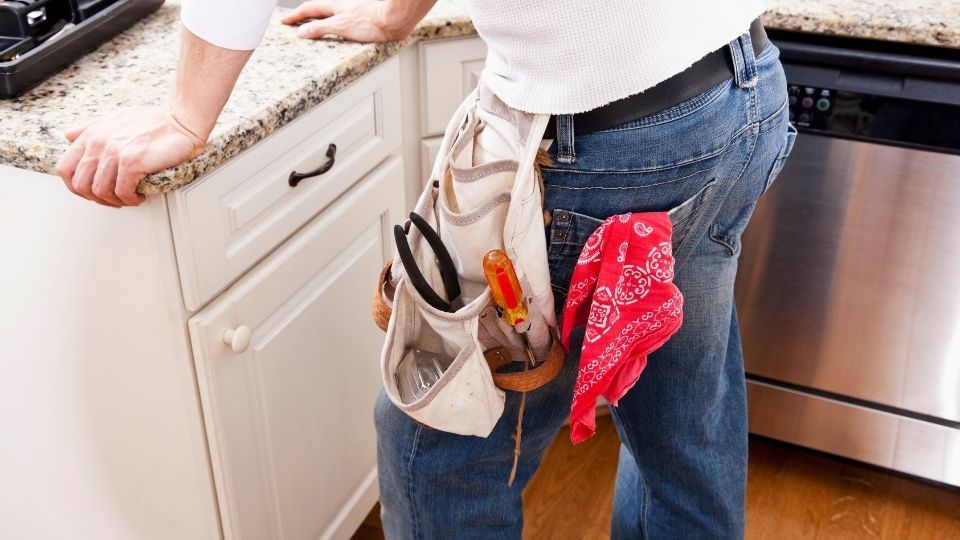As a rental owner, you’re bound to come across tenant damages. However, you can take proactive steps to reduce the damage caused by a tenant when it occurs. This article provides useful tips for mitigating the tenant damage you may face in the future.
Set Up a Proper Tenant Screening Procedure
If you perform an extensive tenant screening, you’ll be able to filter out the problematic tenants from contention. Check their references and call up previous landlords. The more information you can learn, the better. It’s important to learn how tenants have taken responsibility for the damage they caused. If they didn’t report it or left without addressing the damage, this is a red flag.
Other things you want to assess are the credit score of the tenant, employment history, and finances. After all, you’re running a rental business and you want to avoid financial losses from unpaid rents. It’s also vital to check the criminal background to ensure safety in your property as well as your other renters.
Create a Solid Leasing Agreement
A well-crafted lease or rental agreement reduces potential conflicts. Be clear in the lease agreement. Mention things you want to prevent such as smoking inside the property, lighting candles and leaving them unsupervised, tending to houseplants, or not reporting maintenance issues that need repairs.

Prior to signing the lease, talk to your tenant and inform them that they have maintenance duties on the property and keep it reasonable. This sets expectations early and prevents pointing fingers if property damage occurs.
Practice Vigilance when a New Tenant Moves into Your Unit
Moving can entail transferring bulky objects that can result in bumps, scratches, and dents in your rental home. Before a tenant moves in, it’s best to prepare safeguards. You can ask tenants to use sheets to leave the floors unmarked. You can also remind them to slow down when moving heavy furnishings to prevent unnecessary bumping that can damage your walls.
Perform Routine Inspections
Regular inspections help landlords guard against potential tenant damage. As a landlord, you need to perform property inspections to check the habitability of your home and locate any damages that you can address.
By checking your property, you can see if it’s still compliant with building, health, and safety codes. You can also check the attractiveness factor of the unit. If it’s looking worn down, you can conduct renovation projects. Doing so can reduce the potential for tenant turnovers.
Don’t leave anything unchecked. Look at things such as heating systems, lighting fixtures, doors, and windows. Inspections are categorized into move-in inspections, move-out inspections, seasonal inspections, and drive-by inspections. You need to send a notice to your tenant before you enter the rental property. Drive-by inspections don’t require you to notify the renter though.

Ensure that You’re Investing in the Right Upgrades
Avoid purchasing items that require heavy maintenance since this can lead to quicker depreciation. Choose high-quality items when it comes to appliances, countertops, flooring, and window dressings. It may require a bit more capital upfront but the durability factor means longer periods between repairs and replacements.
Prioritize Finding Tenants Right Away
An empty rental means a loss in income. Vacant units can also attract burglars and vandals. You should therefore secure a vacant property to prevent damages. You should:
- Keep your entry points secure. Budget for an alarm and camera system
- Go inside your rental property to check for issues as well as the outside areas
- Check your insurance policy if it offers extra protection for a vacant unit
- Seek a neighbor’s assistance to look over your property when you’re away
Choose Your Plants with Care
Even if plants improve the property’s curb appeal, they can create damage without proper research. Some plants can draw more pests inside your home.
Be more strategic with your tree placements. When the roots grow deep, they can invade the pipe systems or cause damage to your home’s foundation. Tree branches should also be checked so it doesn’t lead to broken windows, roof damage, or gutter problems.
Don’t Exempt Long-term Tenants from Property Inspections
Given that long-term renters have shown their loyalty, you may skip their unit for property inspections. This is bad practice. Remember that long-term tenants can still expose you to risks of property damage.

There should be no exceptions. You must include a long-term renter’s unit when performing property inspections. This keeps your property safe from damage and will require less cost when arranging for repairs.
Build Good Relationships with Your Tenants
When you have a positive relationship with a tenant, it will be easy to manage your rental. You can cultivate this by building trust. Address a renter’s maintenance request right away. This makes them feel that you’re dependable.
Maintain a respectful approach. Send a notice before entering the unit of the renters. It’s one of their rights to have quiet enjoyment in the rental. Though states differ in the notice policy period, make sure that the notice reaches your renters 24 hours before you go inside the property.
Request Your Tenant to Pay a Security Deposit
One of the most effective ways to protect your home against tenant damages is to collect a security deposit. Tenants want to get a full refund so they’ll readily take better care of your unit. A security deposit inspires the renters to perform their maintenance duties. They’re also more alert to reporting any property damage found on your property.
A security deposit is also effective if a tenant doesn't pay rent. But, there are things you can do if the deposit doesn't cover unpaid rent as well.
Bottom Line
These are tips on how you can minimize tenant damages should help you gain some peace of mind. If you don’t have adequate time to oversee the needs of your rental property, you can always hire a professional property manager.
Lone Eagle Management is a reputable company that can handle the needs of your property. Our pricing plans are reasonable and worth the investment. Contact us today to learn more about our property management services!